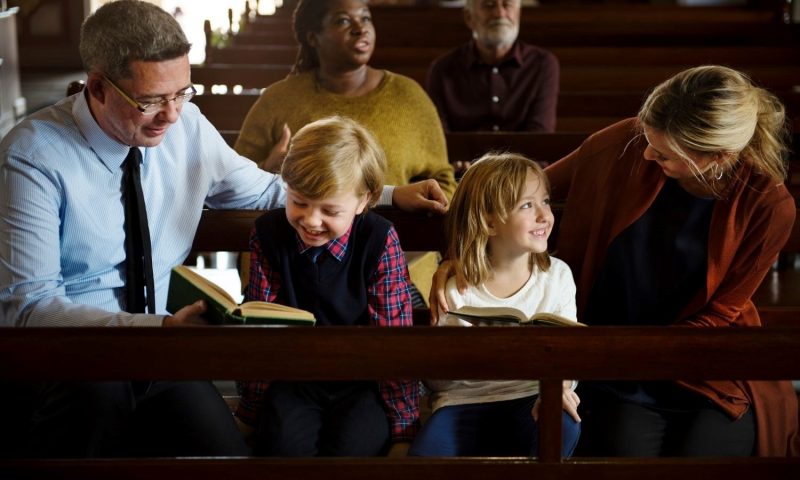Culture and religion teach us a lot about ourselves—with or without our awareness. When we start learning young, we are taught how to observe these behaviors.
A child’s development begins the moment they are born. Different cultural backgrounds influence that growth, which activates their learning. From childhood to adulthood, religious traditions and cultural influences impact how we learning and live out certain truths. Consider psychological conditioning and how it works with religion.
Classical Conditioning
The church does a great job of classical conditioning—you are given a stimulus, the church, which induces a response, worshipping at this church. If there is a particular church that you attend, this would be where you worship. Early on, worshippers are conditioned to attend weekly services in a church building because that is where you practice your devotion and religion. Another form of classical conditioning could be finding the right Bible for your child. Having a Bible of their own will compel your child to read it more regularly.
Operant Conditioning
This type of conditioning involves a reward-based response that follows the action. In many religions, if you do as you are asked and believe in the teachings of the religion, you will be rewarded with everlasting life. People may choose to attend church and believe in these teachings for personal reasons, but it is the reward stimulus that continually encourages people to operate as worshipping, church abiding individuals. Children learn this way especially well since it includes a reward.
Observational Learning
This simple method involves the brain absorbing various stimuli, which may come in the form of one’s surroundings, people, stories, music, traditions, dancing, food, community, and much more. Religious experiences are important to people who choose to raise their children in those environments because those opportunities allow the children to observe a particular way of living.
The idea of psychological conditioning working with religion isn’t as far-fetched as some people may believe it to be. Even if you don’t attend religious services as often as other people do, the practice will still condition you to consider things in a certain way. The traditions and knowledge passed down through the generations within a certain culture make the religious experience important and special for so many.
